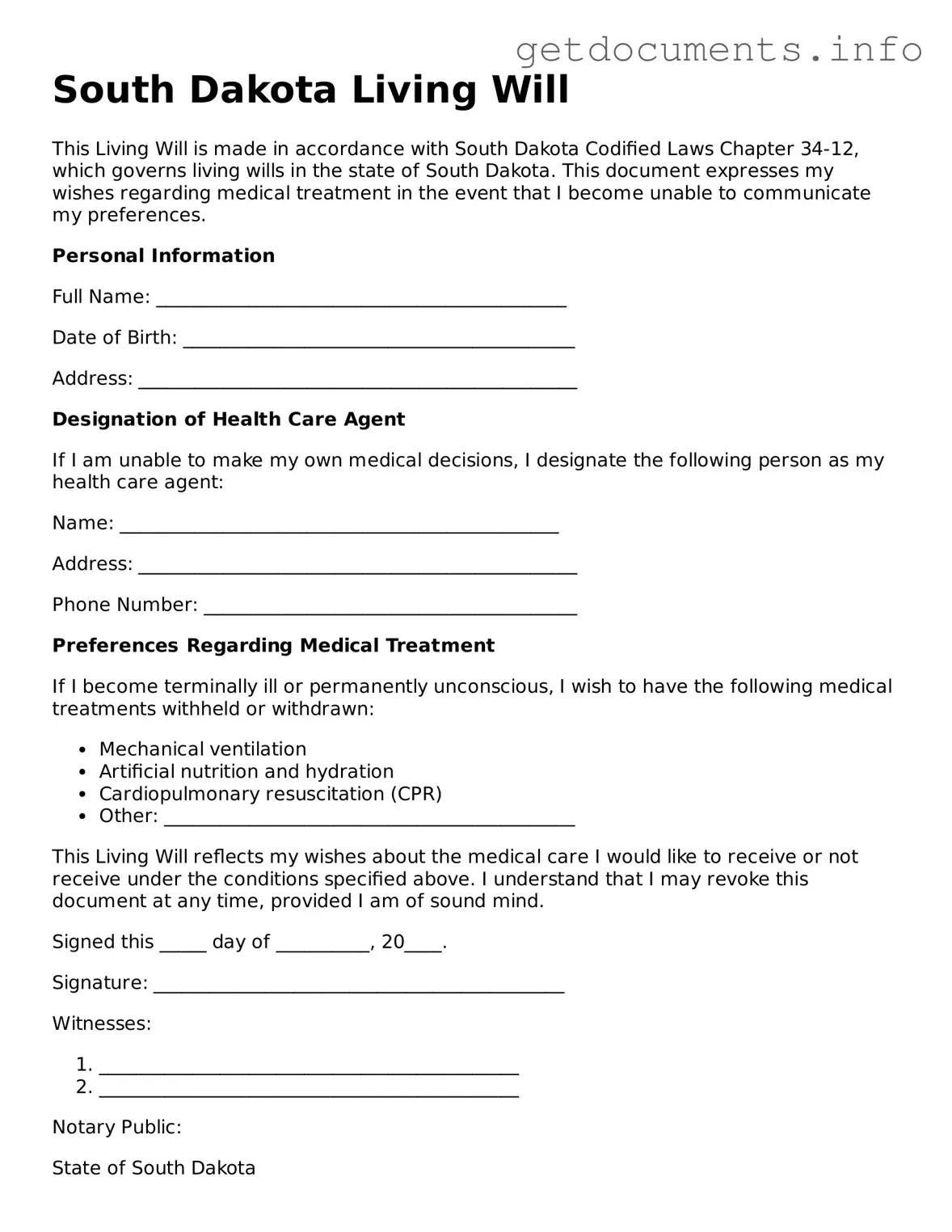Free Living Will Template for South Dakota
A South Dakota Living Will is a legal document that allows individuals to express their wishes regarding medical treatment in the event they become unable to communicate those preferences. This form ensures that your healthcare choices are respected, providing peace of mind for both you and your loved ones. Take control of your future by filling out the Living Will form today—click the button below to get started!
Access Living Will Editor

Free Living Will Template for South Dakota
Access Living Will Editor
Got places to be? Complete the form fast
Fill out Living Will online and avoid printing or scanning.
Access Living Will Editor
or
⇩ PDF File
